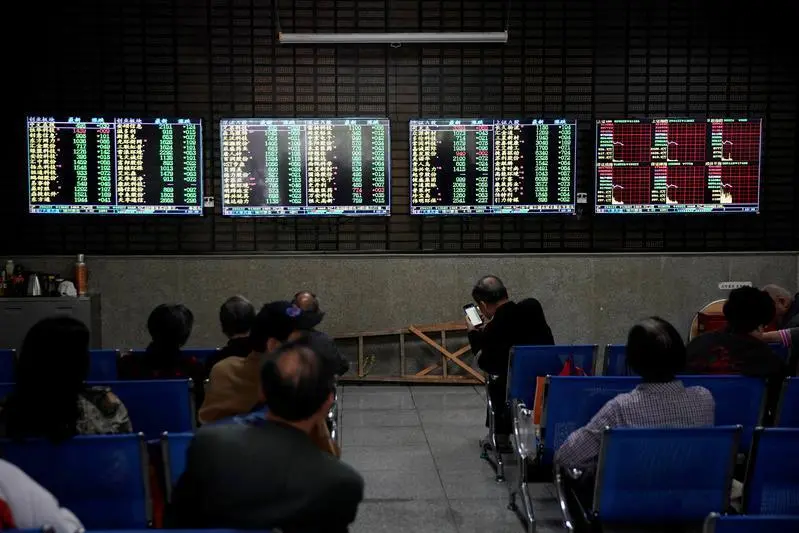PHOTO
SHANGHAI - Stock markets in China and Hong Kong jumped on Thursday, led by gains in the embattled property sector, as Beijing pledged more policy measures to spur growth just days after announcing big rate cuts and funding for the markets.
The benchmark Shanghai Composite index ended 3.6% higher at 3,000.95 points by the close, while the blue-chip CSI300 Index jumped 4.2% to 3,545.32 points.
Both indexes finished at the highest closing level since June, and capped their seventh straight winning session.
Chinese H-shares listed in Hong Kong soared 4.28% around 0702 GMT, while the Hang Seng Index jumped 3.67%.
Shares rose sharply after state media reported, citing a Politburo meeting on the economic situation, that China will step up counter-cyclical adjustments of fiscal and monetary policy and strive to achieve full-year economic and social development targets.
Markets also got a bump higher after a Bloomberg News report citing unnamed sources said Beijing was considering injecting up to 1 trillion yuan ($142.48 billion) of capital into its biggest state banks to increase their capacity to support the struggling economy.
An index tracking the consumer staple shares surged 8.65%, while the real estate index jumped 9.36%.
Analysts at UBS investment bank said in a note to clients that bearish investors could cover their shorts and go for a neutral weight on the market, or go long but through stock options.
"Investor sentiment on China has remained low with many head-fakes post-COVID, so the recent headlines are only exciting those who have China mandates and have been waiting for a coordinated, top/down response, which is taking shape," they wrote.
Goldman Sachs said in a note it mainly saw long-only funds and hedge funds being active and the flows were into consumer discretionary and financial sectors, which were among the two main winners on Thursday.
At the close, the smaller Shenzhen index rose 3.76%, the start-up board ChiNext Composite index jumped 4.42% and Shanghai's tech-focused STAR50 index rallied 3.87%.
"Although these measures will not fundamentally reverse the low appetite for credit in the economy, they will at least bolster lending in support of public investments," Tianchen Xu, senior economist for China at EIU said in a note.
"The actions demonstrate that the government is willing to take proactive measures to support growth, rather than tightening for the sake of defusing systemic risk." ($1 = 7.0186 Chinese yuan)
(Reporting by Shanghai Newsroom; Editing by Himani Sarkar)




















